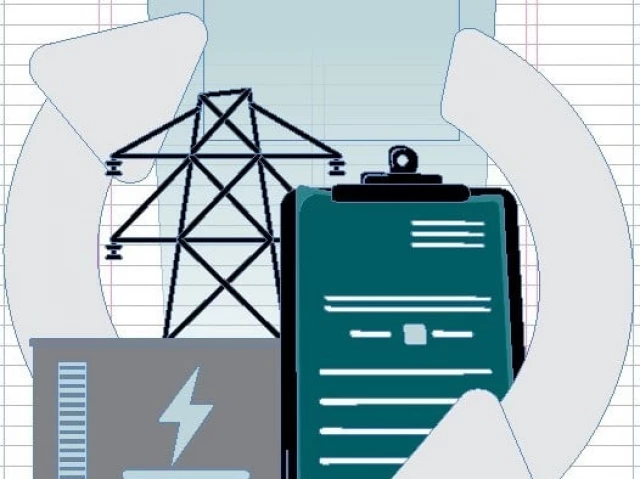Govt to challenge KE tariff decision
Leghari says profits must come from efficiency, not subsidies that hit masses

Minister for Power Awais Ahmad Khan Leghari on Thursday announced that the government would challenge the decision of the power-sector regulator and would file a review petition with the National Electric Power Regulatory Authority (Nepra) for reassessing K-Electric’s (KE) tariff structure.
He stressed that power companies must earn profits through operational efficiency rather than relying on subsidies or charitable assistance.
Speaking to the media after addressing a workshop on “Reforms in the Power Sector,” Leghari announced “we are working to ensure that neither the federal government nor the power consumers are overburdened.”
He emphasised the need for performance-based profits in the power sector. “We are moving towards privatisation. K-Electric and other investors should earn profits based on efficiency, not subsidies.” He called for the enforcement of regulatory frameworks in distribution companies (DISCOs).
“We will approach Nepra to ensure that consumers get electricity at reasonable prices,” the minister said, adding that K-Electric’s tariff burden was indirectly shared by the consumers of other DISCOs through taxes. “We expect Nepra to take decisions that benefit both the nation and the consumers.”
Regarding net metering, Leghari said that consultations with stakeholders had been completed and a revised policy had been prepared. “If the new net metering policy is approved, it will be implemented within a month,” he said.
The minister also noted that climate change has reduced hydropower generation, forcing the country to rely on more expensive sources of electricity. “The fuel cost adjustment (FCA) varies monthly due to fluctuations in generation costs,” he said.
The power minister highlighted reductions in electricity costs, saying “prices have decreased by 31% for the industrial sector and by 50% for 18 million household consumers.” However, he acknowledged that climate change has led to a drop in hydropower generation, forcing reliance on more expensive sources. “The FCA varies monthly, but overall, electricity prices have declined.”
Regarding the circular debt, Leghari revealed that the government was planning to borrow from banks to eliminate the mounting debt.
He stressed that there was ample electricity for grid supply over the next three years, adding that in the past one year, the government implemented key reforms to provide relief to power consumers.
The minister strongly denied reports of any increase in electricity prices, stating that the government has not raised tariffs in any form.
“In the last year alone, industrial tariffs have been reduced by 30%. The government is committed to bringing long-term, sustainable reductions in power tariffs,” he said.
Leghari stated that Pakistan was undergoing a revolution in renewable energy. “For the past year, we have been conducting research and analysis in the energy sector and are also reviewing agreements with the independent power producers (IPPs). As a result, electricity prices have started to decline.”
He further said solar energy was a remarkable and promising source. In recent years, solar power production has increased significantly.
The minister criticised past planning in the energy sector, saying the projections made in previous years were not realistic. He reaffirmed the government’s intention to reduce tariffs sustainably and highlighted the exponential progress in alternative energy sources.
“During the Covid-19 pandemic, energy demand increased. We are now working on separating the government from future electricity procurement,” he added. He also emphasised that the inclusion of Bhasha Dam into the power system would be a significant development.
Leghari assured that the government was making efforts to shield consumers from the consequences of poor planning in the power system. Reforms are underway in the transmission sector, although the country currently lacks modern technology to assess load pressure on transformers and feeders.
Regarding thermal plants, he said the government is trying to ensure that coal- and gas-fired power plants do not adversely impact the environment.
In response to a question, the federal minister said that the cabinet has ordered a review of the net metering policy. Stakeholder consultations will be held and feedback will be sought. After the cabinet’s approval, the revised policy will be implemented.





















COMMENTS
Comments are moderated and generally will be posted if they are on-topic and not abusive.
For more information, please see our Comments FAQ